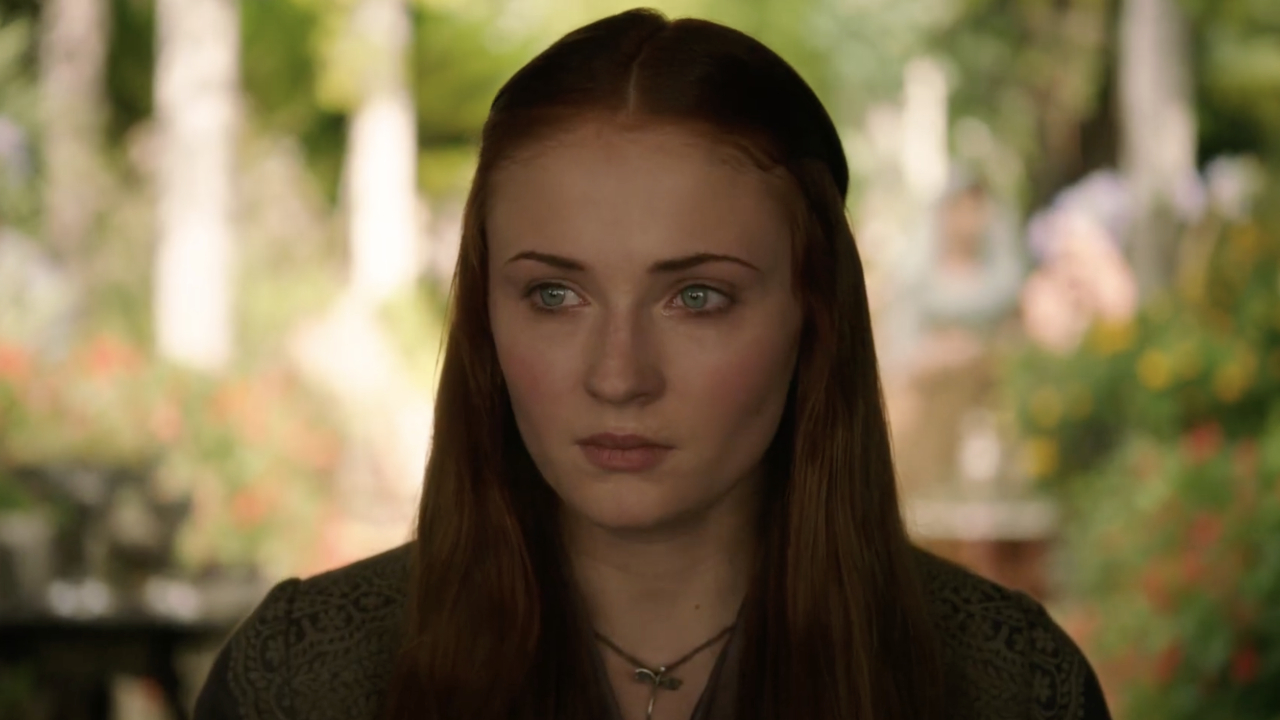I Just Rewatched Bill And Ted's Excellent Adventure For The First Time In Years, And It Led To Me Falling Down A Time Travel Rabbit Hole
Bill and Ted's Excellent Adventure is still excellent, but I am still trying to figure out how the time travel makes any sense.
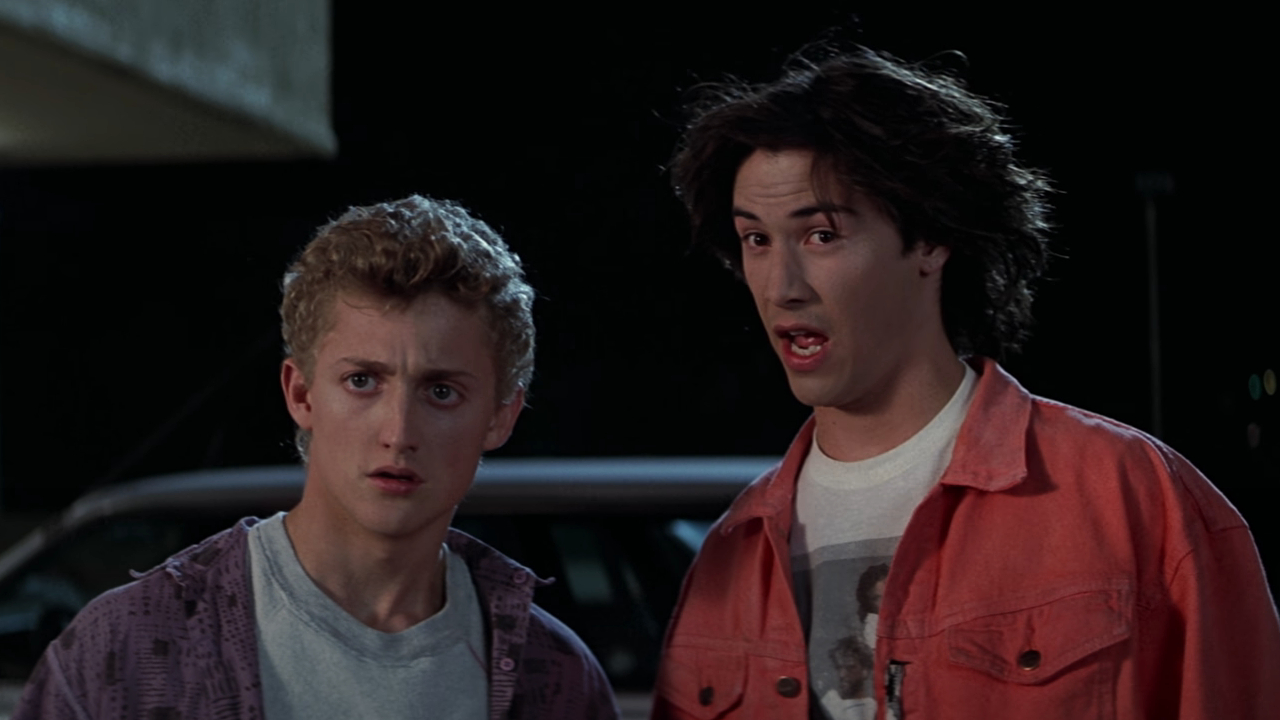
I still remember going to a movie theater with my friends when I was 11 years old and seeing one of the best '80s movies, Bill and Ted’s Excellent Adventure, for the first time. I didn’t even want to see it, thinking I was too smart for the comedy about a couple of dumb guys. However, I was talked into it and ended up loving the movie. I few years later, I would reunite with the same friends to see Bill and Ted’s Bogus Journey, and they were very much in my thoughts when I fell in love with Bill and Ted Face the Music so many years later.
Yet while I love the whole trilogy, Bill and Ted's Excellent Adventure is still the best movie in the franchise, though it had been quite some time since I had actually seen it. I watched it so often as a kid I still know it by heart, but in sitting down to go through it again for a piece I was writing, I found myself being sucked in by the absolutely ridiculous time travel mechanics of the story and asking questions I'd never asked before. In many ways, the time travel is brilliant, and I know the movie is a comedy that isn’t meant to be taken too seriously. At the same time, I have some serious questions about how it all works that I can’t get out of my head.
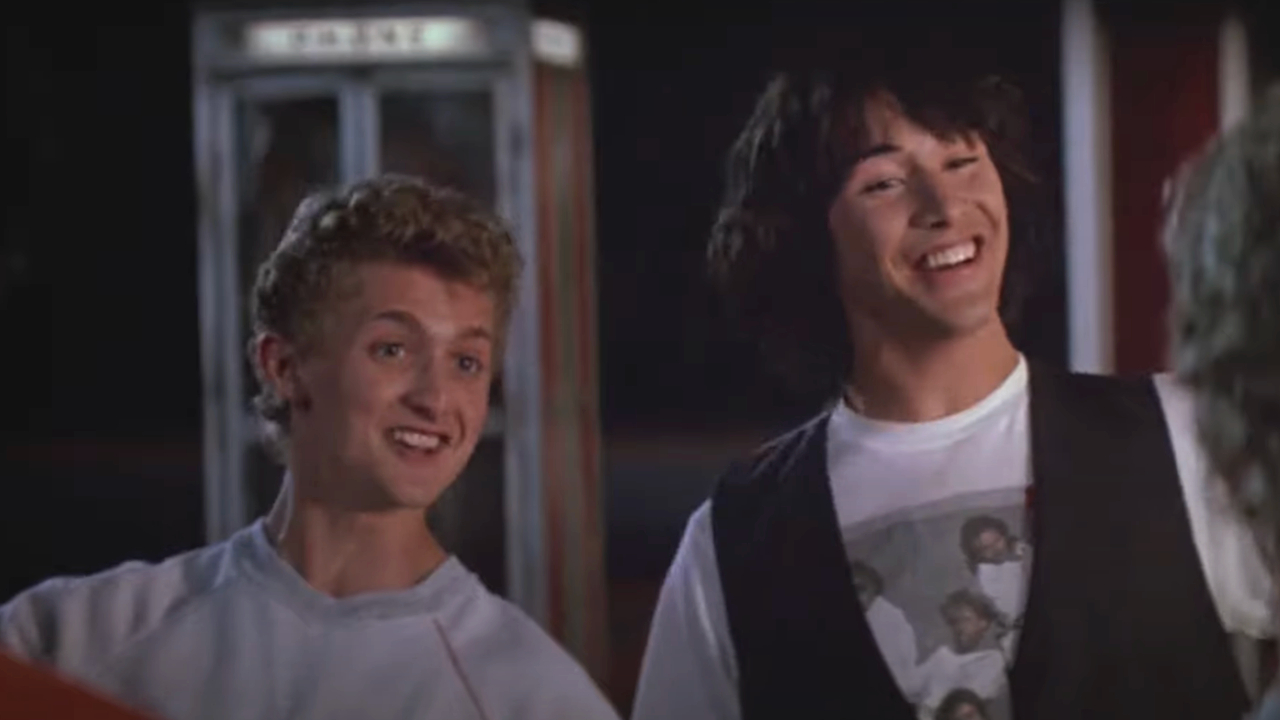
Bill And Ted’s Timeline Is A Recursive Loop, But It Had To Start Somewhere
The premise of Bill and Ted’s Excellent Adventure, for all its time travel nonsense, is simple. Bill and Ted are destined to change the world, and so the future that depends on them sends George Carlin’s Rufus, the true hero of the movie, back in time to ensure the duo is not broken up due to a failing history grade, which sends Keanu Reees’ Ted off to military school, destroying their band before it has a chance to make the world a better place.
But then, how does that work exactly? The future where Bill and Ted have united the world already exists, which indicates the pair did not split up, but if time travel intervention is necessary to prevent the split, how did the future that works to prevent it come about in the first place? It’s a paradox of predestination, and it just doesn’t work.
Bill and Ted’s Bogus Journey tells us that changing the past is at least theoretically possible. That’s what Joss Ackland's villain attempts to do, trying to kill Bill and Ted before they form their band, but there’s no indication in Excellent Adventure that anything has gone wrong in the past that requires Rufus’ intervention to fix. The implication is that Bill and Ted will naturally fail their history report if time travel doesn’t help them, which would mean that the future that helps them never comes to pass, right? Why is my nose bleeding?
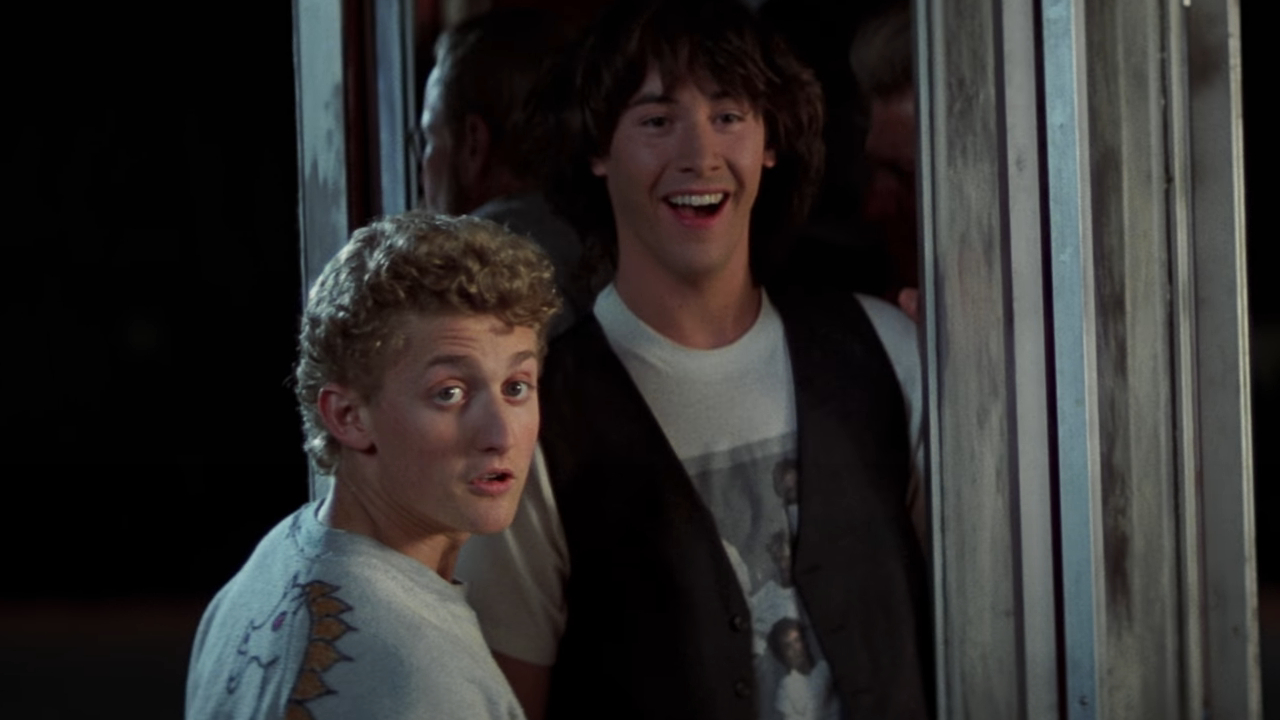
How Does The “Clock In San Dimas” Keep Moving Forward If They Can Go Back In Time In The Future To Change The Present/Past
One of the key plot items in Bill and Ted’s Excellent Adventure is a ticking clock. It's a frequently used drama element, but it doesn't work here. Rufus explains to them that even though they have a time machine, it is still possible for them to miss their history report if they are not back in time to give it because their timeline continues marching forward while they are in the past. Ted is supposed to wind his watch, which he forgets to do, and the pair nearly miss the report. This makes zero sense.
Bill and Ted can travel into their own past, as they do, accidentally traveling to the night before their report where they meet themselves. While we never see it, we know they travel into their past again after their report is done to set up the Rube Goldberg series of events that allow them to break the historical figures out of jail. If they can go back in time and deliver a set of keys, why can’t they go back in time to give their history report?
Your Daily Blend of Entertainment News
Interacting with themselves in the past doesn’t cause any sort of paradox, as it does in other time travel stories. Even if there is a constantly-changing present moment for Bill and Ted that they are missing by not being around, they can just travel into the “past” by arriving there as they already do in the film. What was to stop them from, instead of time jumping to the next day, simply taking the historical figures home from the Circle K in their "past" and simply waiting for the next day? At least if they had done that it would explain how they had time to create a multi-person choreographed stage show with music and lights.
What’s the difference between going into the past to drop a set of keys and set up a tape recorder, and going to the past to give a history report? As long as the pair do go back and give the report, it shouldn’t matter when, from their perspective, they do it.
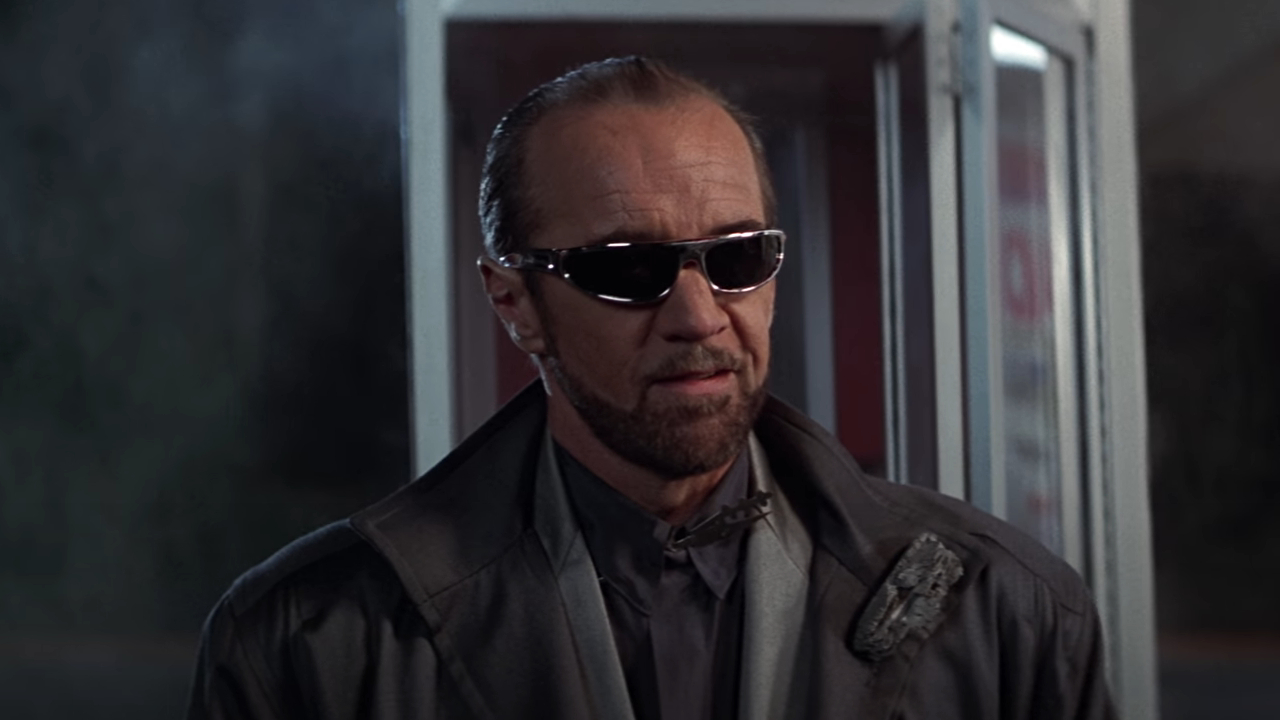
How Does Ted Know Rufus’ Name?
In the grand scheme of things, this last issue is a minor one, but it’s a smaller version of the same infinite loop problem that plagues the rest of the movie. George Carlin’s Rufus never introduces himself, and yet, Bill and Ted learn his name, when it is given to them… by Bill and Ted.
It’s called the bootstrap paradox, and it’s a problem because the information, Rufus’ name, has no clear origin. How did “future” Bill and Ted learn Rufus’ name? They got it from the future when they were “present” Bill and Ted, and the information continues to be passed forever in the loop, but it still doesn’t explain where it came from.
The ultimate answer to these questions is obviously “Who cares? It’s a funny movie.” If anything, the fact that the time travel doesn't work is a feature, not a bug. It's part of the comedy. Nobody other than me is being kept up at night trying to figure out how the time travel in Bill and Ted’s Excellent Adventure is supposed to work. Still, now that I’ve had these thoughts, I’m probably going to have them every time I watch the movie from now on.
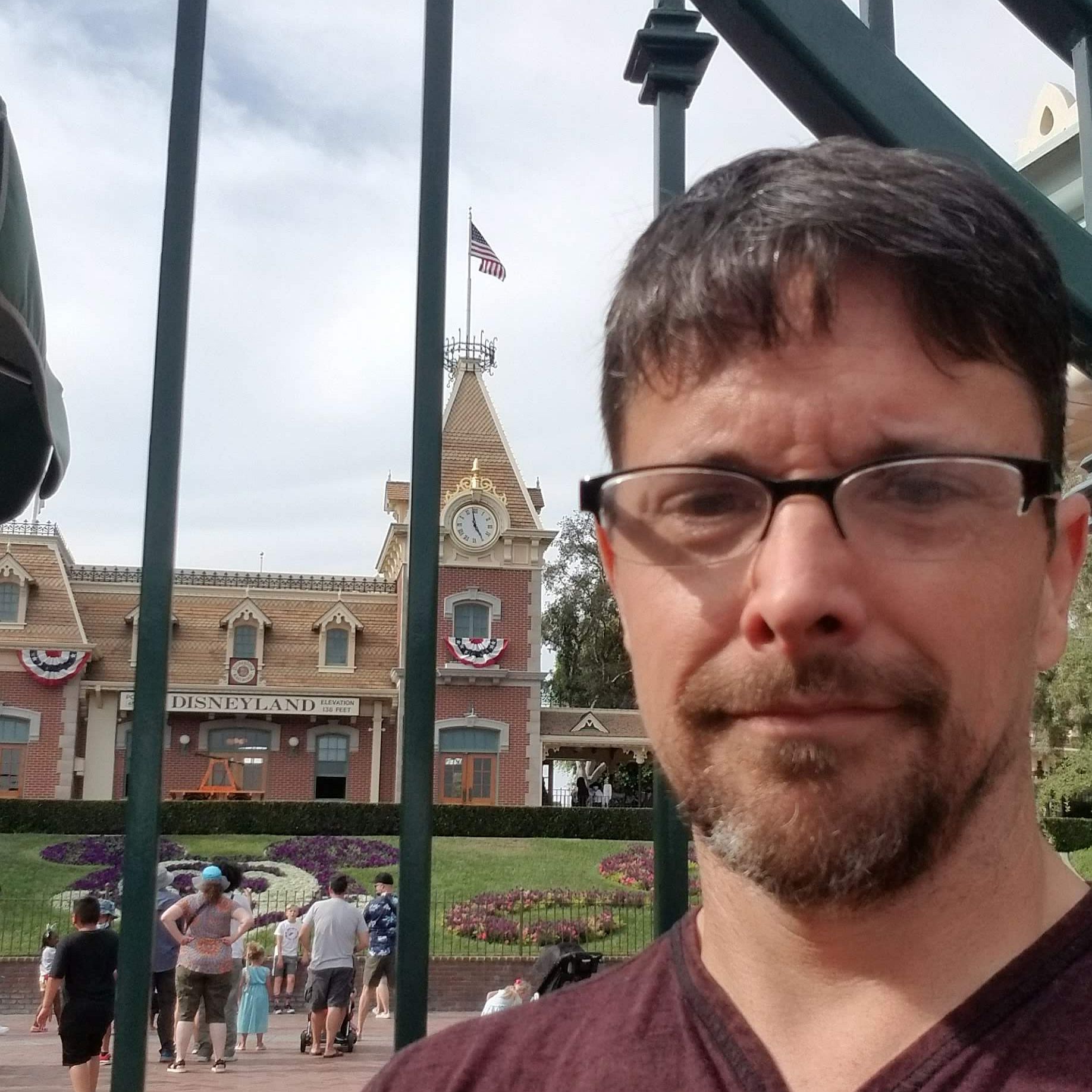
CinemaBlend’s resident theme park junkie and amateur Disney historian, Dirk began writing for CinemaBlend as a freelancer in 2015 before joining the site full-time in 2018. He has previously held positions as a Staff Writer and Games Editor, but has more recently transformed his true passion into his job as the head of the site's Theme Park section. He has previously done freelance work for various gaming and technology sites. Prior to starting his second career as a writer he worked for 12 years in sales for various companies within the consumer electronics industry. He has a degree in political science from the University of California, Davis. Is an armchair Imagineer, Epcot Stan, Future Club 33 Member.
